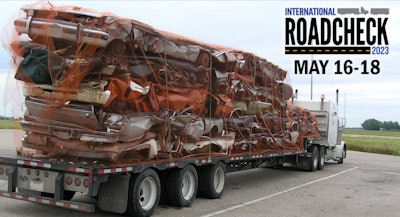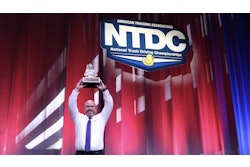
The Commercial Vehicle Safety Alliance (CVSA) has announced May 16-18 as this year’s International Roadcheck, which is the organization's high-visibility, high-volume 72-hour inspection and enforcement event involving inspectors in Canada, Mexico and the U.S. They will conduct inspections of commercial motor vehicles and drivers at weigh/inspection stations, designated inspection areas and along roadways.
This year, inspectors will focus on anti-lock braking systems (ABS) and cargo securement according to CVSA. Although ABS violations are not out-of-service violations, ABS plays a critical role in reducing the risk of collisions by preventing the wheels from locking up or skidding, allowing a driver to maintain control of the vehicle while braking.
CVSA said improper cargo securement poses a serious risk to drivers and other motorists by adversely affecting the vehicle’s maneuverability, or worse, causing unsecured loads to fall, resulting in traffic hazards and vehicle collisions.
During a routine North American Standard Level I Inspection, inspectors focus on two areas:
- Vehicle safety – Inspectors will ensure the vehicle’s brake systems, cargo securement, coupling devices, driveline/driveshaft components, driver’s seat, fuel and exhaust systems, frames, lighting devices, steering mechanisms, suspensions, tires, wheels, rims, hubs, and windshield wipers are compliant with regulations.
- Driver safety – Inspectors will check the driver’s operating credentials, hours-of-service documentation, status in the drug and alcohol clearinghouse, seat belt usage, and for alcohol and/or drug impairment.
Vehicles that successfully pass a Level I or Level V Inspection without any critical vehicle inspection item violations may receive a CVSA decal, which is valid for three months.
If the inspector does identify critical vehicle inspection item violations, as outlined in the North American Standard Out-of-Service Criteria, the vehicle will be restricted from operating until the identified out-of-service conditions have been corrected. Inspectors may also restrict the driver from operating if the driver is found to have driver out-of-service violations, such as not possessing a valid or necessary operating license or exhibiting signs of impairment.








